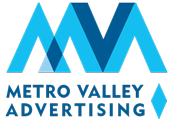The Coronavirus has impacted our lives in many ways, some that were not imaginable. The pandemic has also had a profound effect on advertising. That has included Google and Facebook ads. The good news is that people are spending far more time online than ever before. Unfortunately, they aren’t on Search Engine Results Pages as much, and their social media usage is more focused on keeping in touch than in clicking on ads. This is the time to take incremental steps to improve Facebook and Google performance now.
Google performance starts with account structure. There is an architecture to a Google ads campaign. The more exactly you follow the structure the higher your Quality Score and lower your Cost-per-Click. Make sure that none of your campaigns has more than 10 Ad groups. If one does, create a second campaign. Any Ad group with 15 or more keywords should be split in two (Google suggest 6-8 keywords per Ad Group) Each Ad Group needs a minimum of 3 ads, one of which must be responsive. Start the ad campaign rotating ads evenly, not on “best performing”. Google always defaults to responsive ads, so you won’t get a clear picture on performance.
Look at incremental ways to boost conversions or lower the cost-per-conversion. Start by considering your ad schedule and when the most conversions occur. At the bottom of the Overview page is a section entitled Ad Schedule. Look at the days and hours when the most conversions occur, and optimize spend to take advantage. Review your keywords and position data. Google’s suggestions of what you need to bid to appear in the top 4 ad positions is often inflated. Start with Google’s suggested bid on a new keyword and then incrementally lower the bid. You will be surprised by how much less you can bid and still appear in one of the top 4 positions. At the campaign level review Auction Insights to compare your performance against competitors in your campaign. Again, you may be able to bid less and get the same results.
And don’t forget Retargeting. While conversions may be down web traffic is up. Retargeting, both on Google and Facebook is a great way to promote your brand to people who have visited your site, and get them back to convert.
Likewise, Facebook ads need re-examination. Facebook has announced that ad approval could be slower at this time. Be prepared to continue running better performing ads during the approval process. All of your Facebook ads need to be relevant. Promote timely offers such as curbside pickup and delivery; Online shopping promotions; Virtual or phone consultations and offers of gift cards to use once your business is open again.
Continue to test your Facebook ads. A/B test copy. Try different lengths of copy. Test headlines and images. Experiment with video if possible. For as little as $15-$20 dollars you can run a meaningful test. If the new ad fails, the loss is not significant. But successful tests can increase clicks and conversions, growing the bottom line. Remember, behaviors have changed which impacts media performance. If a high performing ad or campaign falters it does not mean it is no longer good. Put it on the side until things return to “normal” and then test it again.
And as with any advertising, don’t stop successful Facebook campaigns just because of the pandemic. People are still using the platform in droves. You have momentum and equity in your campaigns so keep it going. Even if you reduce your budget you will continue to build your brand. When people do return your product or service you will be that much more top-of-mind.
The current marketing environment is not all doom and gloom. Now that the initial shock has worn off people are adjusting. At the same time, stimulus checks and PPP money are circulating through the economy and Facebook and Google results are rebounding with it. By the end of the first week of May, Google conversion rates were at 89% of pre-Covid results. As businesses continue to re-open those numbers should continue to improve.
Do not mean to stop being vigilant with regards to ad spend. No one wants to waste money, but when every day dollar needs to count it is even more important to be on top of your game. This is the time to review every campaign from the ground up. Follow “best-practices” exactly and monitor results continuously. Smart advertising still works.



